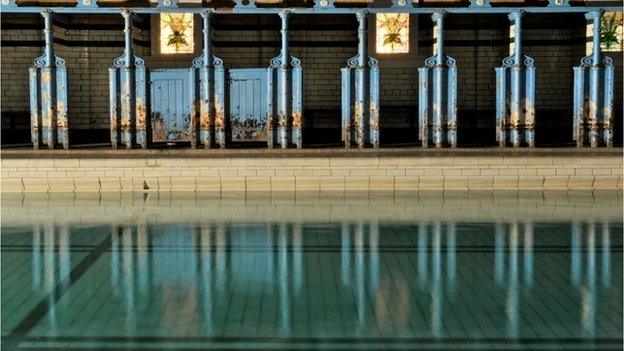Why are fewer people swimming?
- Published
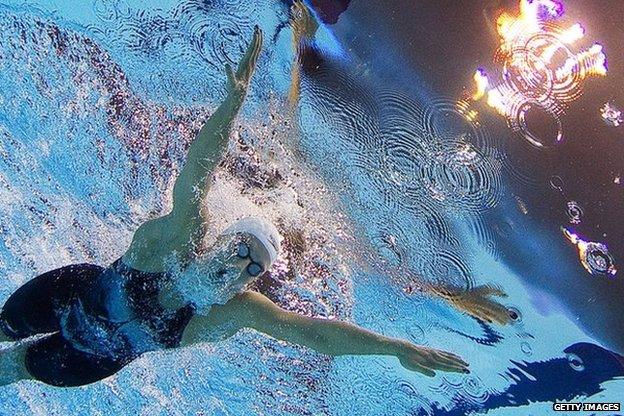
London 2012 Olympian Sophie Allen said she finds it difficult to go swimming now
Swimming is the country's most popular sport but the number of people who regularly swim is declining, according to Sport England's latest grassroots sports participation figures. Why is this?
The London 2012 Olympics were thought to have increased the number of people participating in sport, and this seemed to be the case with swimming.
Statistics published by Sport England back in December 2013 showed the number of people swimming had increased by 48,800, external over the previous six months.
This was described as part of an "emerging trend" over the previous two years, with a net gain of 125,000 participants in the sport.
But now, the Olympic effect appears to have worn off.
Sport England's latest Active People Survey, external shows that 15.5 million people did some kind of sport once a week, every week, in the six months up to 31 March - 222,000 fewer than the previous six months.
Swimming is still the country's most popular sport, with over 2.5 million people taking part weekly, but 144,200 fewer people swam compared to before.

The number of people regularly swimming temporarily increased after London 2012
Adam Paker, chief executive of the ASA, formerly known as the Amateur Swimming Association, said this decline was not a blip.
"Left unchecked, it could become part of a longer trend," he said.
"The numbers have been flat to declining over time, since the late noughties.
"What we've seen recently is a sharp decline, and that's where we are particularly concerned."
Mr Paker said swimming facilities were part of the problem.
"The pool stock in the country is getting older over time," he said.
"I also think technology has got something to do with it.
"If you look at the sports which are experiencing growth, often those participants consume their sports through technology, or with technology."
Cyclists and runners, for instance, often use smartphone apps to track their progress and speed, and even compete with one another.
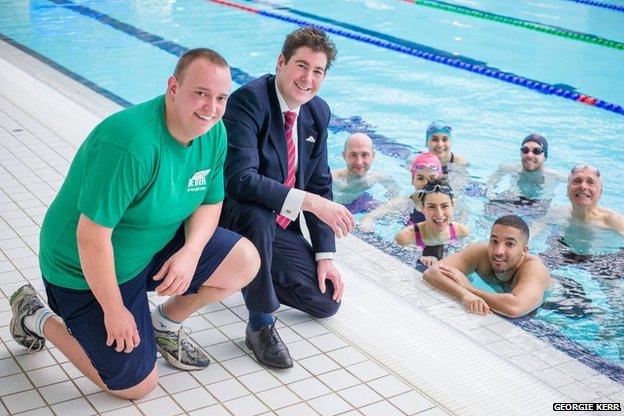
Adam Paker said encouraging people to swim was about changing consumer behaviour
The ASA recently appointed a director of participation, Nick Caplin, to encourage more people across the country to swim more regularly.
Mr Caplin was previously director of communications at Sony Computer Entertainment Europe (PlayStation), and was appointed because of his marketing experience.
"We see this as a marketing job," said Mr Paker. "What we are looking to do is change consumer behaviour."
He said the "gamification" of swimming could be one way of encouraging people to participate.
"We know that people enjoy recording their data and competing with each other, so that could be down to the distance they have covered or the calories they have burned," he said.
"We have been aware there is a problem with participation numbers for some time, so we've decided to take a fresh look at it."
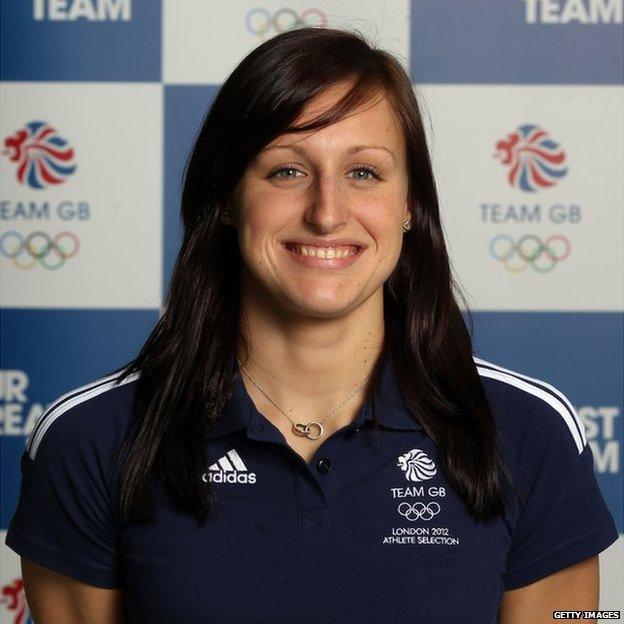
Sophie Allen said some swimming pools were expensive to use
Swimmer Sophie Allen, who represented Great Britain in the 2012 Olympics, clearly already enjoys swimming and does not need encouragement to participate.
However, she finds it difficult to access swimming pools now she is retired.
"I aim to go twice a week but it doesn't often happen, partly because every time I do go the pool is too full or I can't do what I want to do," she said.
"The pools are often full so I get frustrated and leave, and I don't go there next time."
Jennie Price, chief executive of Sport England, echoed Allen's concerns about facilities.
"Many pools prioritise swimming clubs and learn to swim sessions at times when there is most demand from people who want to just turn up and swim," she said.
"We need to balance these competing demands and make sure the casual swimmer doesn't come off worst, as they represent a huge market - three million people across England say they would like to swim but don't currently."
Allen also finds some swimming pools have become expensive, charging as much as £4.70 for a one-hour session.
"I definitely think the cost of swimming needs to stay nice and low, and I guess we need more swimming pools to be honest," she said.
"If I'm somewhere where the pool is quite expensive it puts me off going because I don't want to pay that much."
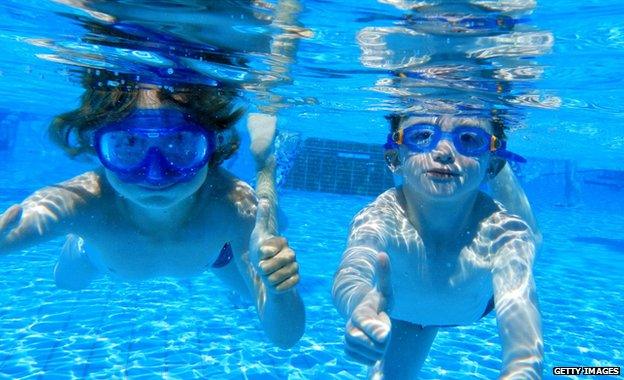
An ASA report found almost half of primary school children in England were unable to swim a length by themselves
She now works for an academy, coaching different sports at primary schools.
Pupils should leave primary school able to swim 25m (27yds) unaided, but Ms Allen said the percentage that can do this is "very low" because swimming is not a priority for some schools.
"It's partly because it's so expensive to do school swimming," she said.
"They have to hire a bus, pay for swimming teachers and have their own teachers there, and it becomes too expensive.
"I don't think it's necessarily checked so schools put it to one side if they don't need to do it."
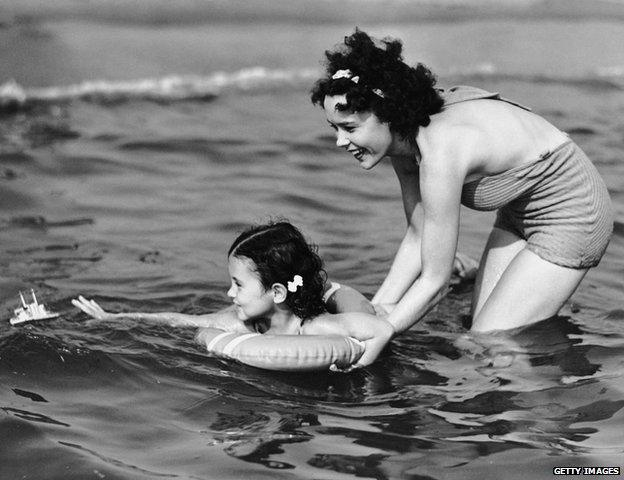
Sophie Allen said many parents were not able to teach their children to swim
An ASA report found almost half of primary school children in England are unable to swim a length by themselves.
The report said more than 1,000 primaries did not offer swim lessons, even though it was a skill on the National Curriculum.
Allen said the problem was compounded because many parents were not able to teach their children either.
"I've had parents approach me and say 'I want my children to be able to swim but I don't want to teach them, and I don't feel comfortable enough myself to be responsible,'" she said.
She believes swimming is a life skill and finds it sad that some children are not comfortable getting into a pool.
"Sometimes I feel like I'm the nasty lady that's making them get in the water," she said.
"Swimming needs to be fun, not feeling like a chore or something someone is making you do."
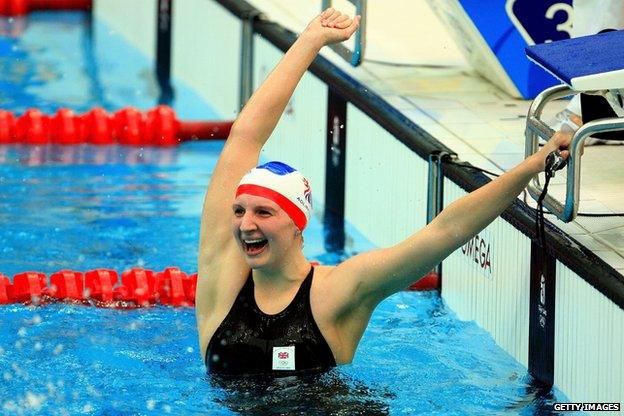
Rebecca Adlington has previously spoken out against the closure of swimming pools
Many councils say they can no longer afford "non-statutory" services such as pools, and residents across the country are fighting plans to close community baths.
Campaigners complain some new council pools are designed for sale to the private sector, while pools in private gyms are not accessible to moderate-income households.
Fellow former Olympian Rebecca Adlington has previously described the situation as a scandal.
"Swimming is not just a sport - you are cutting something that could save somebody's life. For me, that's much bigger than any Olympic medal," she told the BBC.
"We talked at London about building a legacy but if you start cutting swimming pools, where is the sport going to be in 20 years?"
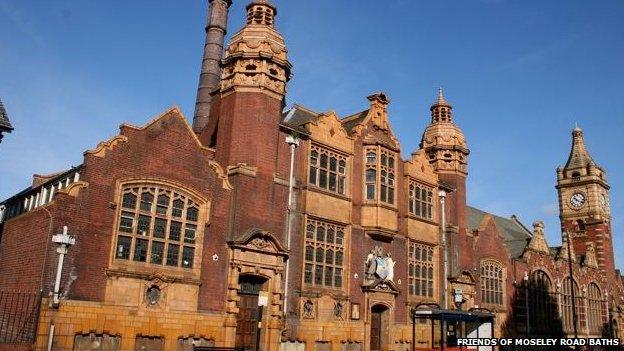
Moseley Road Baths in Birmingham is among many pools across the country threatened with closure
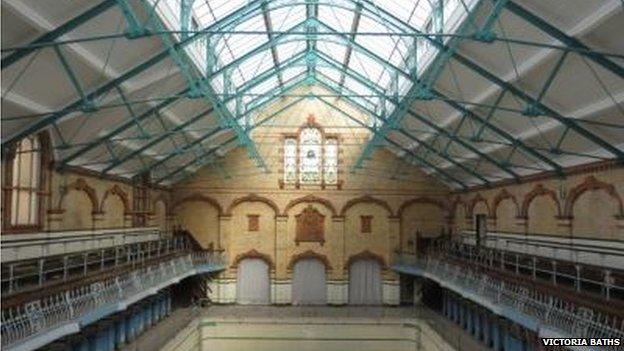
Victoria Baths in Manchester has been closed since 1993 but is being restored
Mr Caplin said this was part of the ASA's challenge.
"Part of the work we do is to protect pools from closure and make an argument for their ongoing economic viability," he said.
"But quite often people have pools closer to them than they think, so it's sometimes an awareness thing."
Sports Minister Tracey Crouch has now promised to develop a new strategy for sport "as a matter of urgency", and said "a more joined-up approach" to sport and physical activity was needed across Whitehall.
"A significant amount of public funding has been invested in sport in the last decade but the results simply aren't good enough," said the MP.
"It's time for a change."
- Attribution
- Published11 June 2015
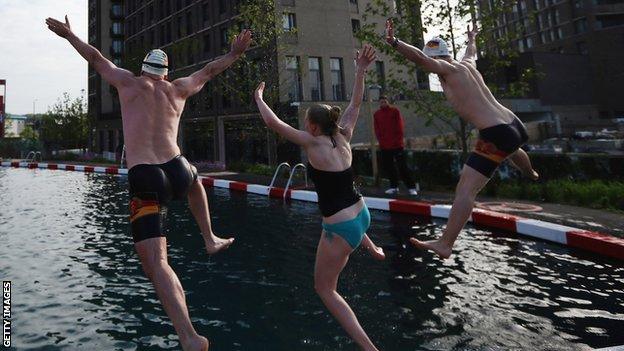
- Published17 February 2014
